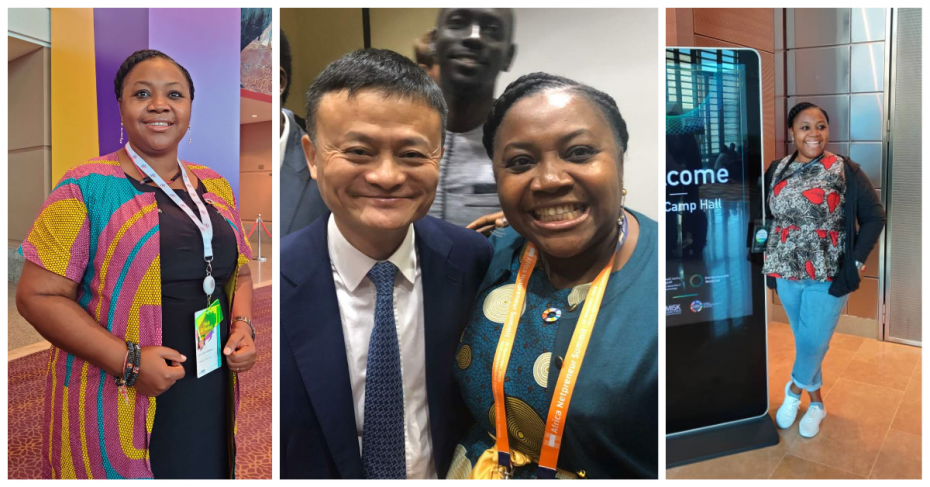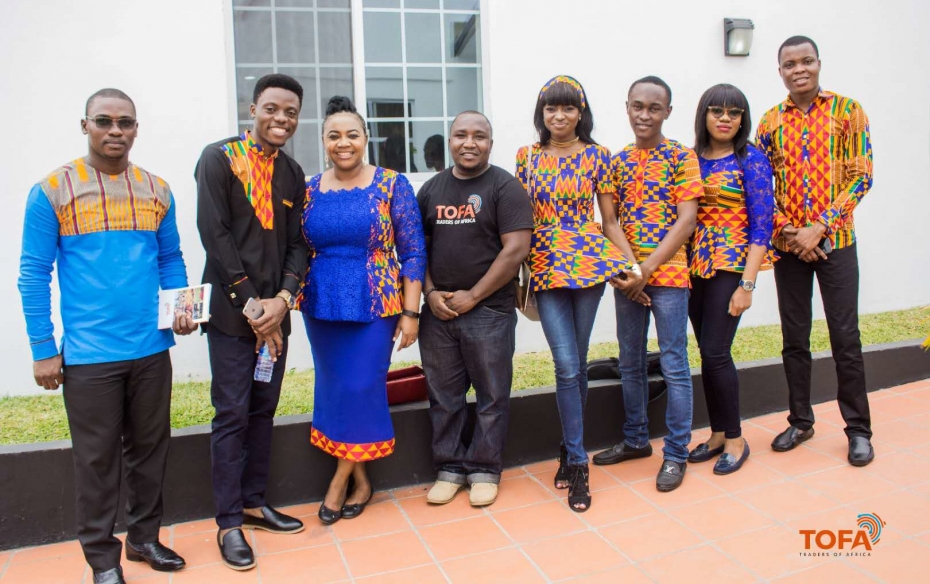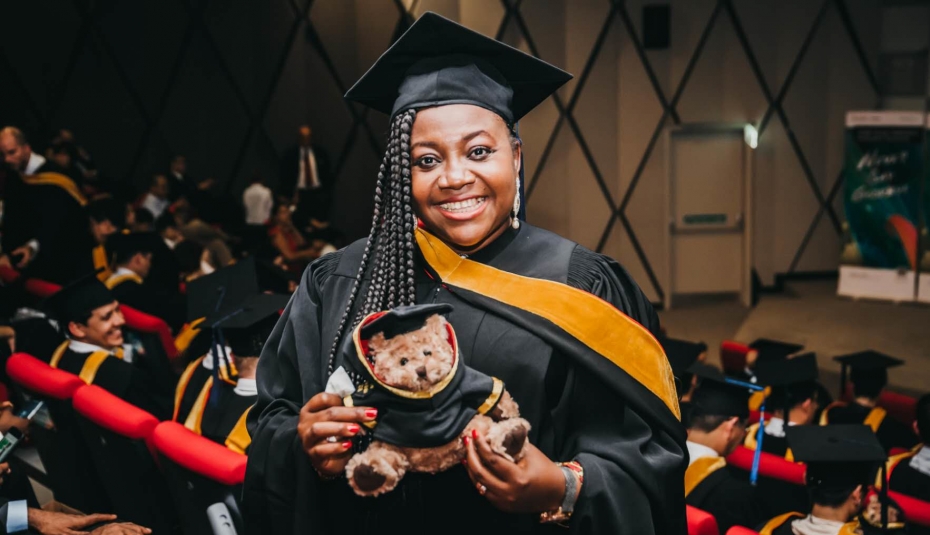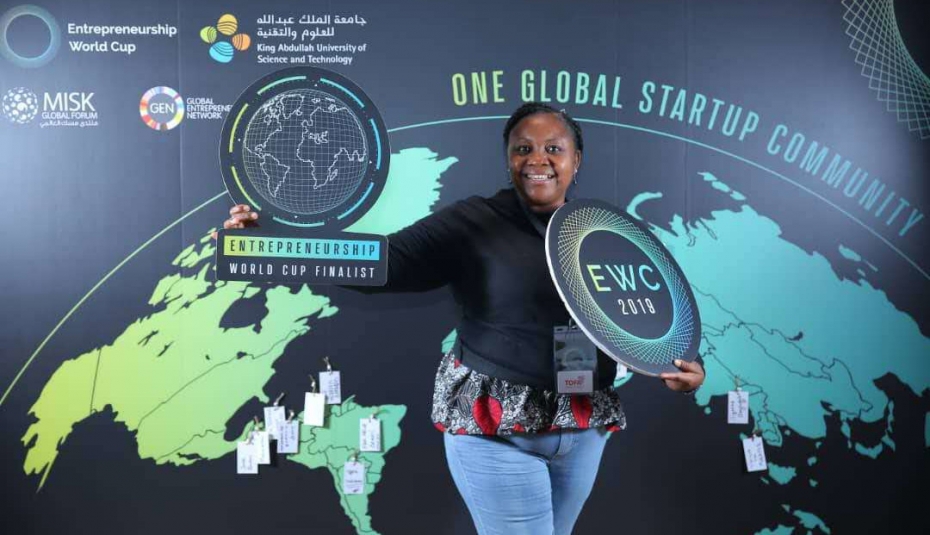Keeping it Real with Uju Ojinnaka

In the second instalment of our Alumni Chapter Interview Series, tech start-up enthusiast, Women’s Leadership Network supporter and CEIBS Alumni International Chapter (CAIC) council member Aneesh Batra (CEIBS MBA 2021) talks with CEIBS Global EMBA alum Uju Ojinnaka about defining success, the importance of trust and integrity and simply keeping it real.
Aneesh Batra: You’re an entrepreneur, a mother of four, and now the founder and CEO of Traders of Africa (a B2B e-commerce platform focused on driving intra-African trade as well as trade between African countries and the rest of the world) and African Trade Invest (a pan-African trade and investment company). What drives you and keeps you motivated?
Uju Ojinnaka: A strong desire to leave a footprint on the sands of time. The desire to touch lives in and around my community, my country and my continent. I want to touch lives of those around me and make them successful. This urge is what keeps me motivated. I want people to be motivated by the work we do; if Uju can do this, then there is hope for them as well. I also want to create is a sustainable business that outlives me and continues to change the lives of people for good. This desire to create provides me the strength and will power to continue fighting every day against all odds.
AB: What is your secret to a healthy balance between your personal and professional life?
UO: For me, I keep it quite real. What has worked for me is knowing and placing my priorities right. My family comes first above all else, of course, my business is very important for me, but to give it the required attention, I need a peace of mind; therefore, I have to make sure that my family and marital responsibilities are well taken care of before I get to the office. As a wife and a mother, I must love and care for my husband and my children – and this comes first. If I can’t care for my family, I can never be successful in my business.
AB: Speaking of success, how do you define being successful?
UO: Success is creating that right work-life balance where no one suffers or loses out. I accomplish this by listing my priorities and putting my family first. But, when I’m at work, then I focus only on that and I make sure things get done there before I go back home. It’s very easy to lose track and get overwhelmed with work, but I remind myself that when I’m at home I have to prioritise my kids and family over everything else. If that means putting in extra hours at night to make up for the lost time, so be it. That’s the price I have to pay and I accept it.

AB: What inspired you to launch Traders of Africa (TOFA)?
UO: Back in 2016, the Nigerian government had put foreign exchange controls in place so as to prevent the collapse of the currency here. My family’s business being import-dependent had bills to settle in China and we were in need of US dollars. One of my classmates at CEIBS helped introduce me to an Indian customer that needed 20 containers of groundnuts. I sent samples, they approved, asked us to bring the product to Lagos and said they would pay in US dollars after inspecting it. We then looked for suppliers, but found no one. I found it difficult to believe there was no website where I could easily find various African products or genuine suppliers. I was also quite worried that if I, a Nigerian living in Nigeria, couldn’t find large quantities of groundnut to buy, how would Chinese or Indians buyers be able to find it? I was determined to bridge this gap, so we created TOFA as a pan-African online marketplace for products grown, produced or manufactured in Africa only.
AB: What was your experience like when TOFA first started up?
UO: The beginning was obviously tough and we had very little trade happening on the platform, mainly due to distrust with stakeholders and complicated financial terms. So, we improvised and built parallel solutions for aiding trade activities between buyers and sellers. Soon, we started seeing traction on the platform and the business has been growing ever since. Last fiscal year we closed at 16,000 suppliers from 15 countries and a turnover of $2.1 million (USD), and this year we’re on track to cross the $10 million mark.
AB: What lessons have you learned from having to deal with so many traders, unions, international partners, and multiple government authorities?
UO: The key words are ‘trust’ and ‘integrity’. How we build trust between multiple stakeholders across the value chain and deliver results is the key to success. Keep your actions where your words are. Whatever you commit to someone, especially in the starting phase of any relationship, do it against all odds. The truth is that sometimes we might only have one chance to prove ourselves and you have to make sure you deliver.
AB: What are some of the opportunities and challenges of doing business in Africa?
UO: A lot of basic opportunities or facilities that you have elsewhere – like logistics, access to funding, or proper infrastructure – are not easily accessible in Africa. But therein lies the opportunities in Africa as well. I don’t ask about things that people or the government can do for me. Instead, I work towards my dream and how I can achieve it. One has to innovate and improvise around their given situation and only then you can make money.

AB: In what way is doing business in Africa unique or different than doing business in other parts of the world?
UO: Africa is a more ‘personal’ continent. This is one of the things that makes us Africa. One can’t simply put things online and expect people to start using it. Most businesses that work well online have deep roots in the offline world first. It’s kind of the reverse of what you see elsewhere. It’s very rare that you see a business online that doesn’t have a well-functioning part already existing offline.
AB: How do you think business relations between Africa and China have advanced over the past few years and what are you most excited about?
UO: I have worked with Chinese suppliers while working in my family business and it’s fairly easy to import stuff from China to Africa. Now that I deal with exports, things are a bit difficult. For example, there are multiple regulations that don’t allow different products to be exported directly from various countries in Africa to China. Africa has to learn and improve on a lot of things. I actually look up to the things China has done for their people and try to learn about how we can adopt certain practices from them. I believe that Africa has loads to learn from countries like China on how to improve the quality of our products and how to slowly but steadily build trust.
AB: Not that long ago, you were in Hangzhou to participate in Jack Ma’s eFounders Fellowship programme and had a chance to interact with him there. What did you learn from that experience?
UO: The programme brings together various entrepreneurs in the digital space in Africa to showcase possibilities in the industry. We got to learn about Jack Ma’s journey, the difficulties he faced building one of the biggest businesses in the world and the learnings he took from that experience. It was an eye-opener for us, as we realised that we may think that we’re doing a lot, but might not be doing anything, or we may think we’re doing nothing, but are actually doing so much for so many people. We left the programme recharged and grateful, believing that whatever we’re doing has great potential for our people and for Africa.
AB: You also recently beat out over 20,000 other start-ups to win the Entrepreneurship World Cup (EWC) in Nigeria and went on to compete in the global finals. What was it like participating in that competition?
UO: This was the first competition we applied to as a business. When we got there, I told my team that it would be a great learning experience for us and that we should just enjoy the pitch, take the criticisms and continue to build our solution. When my name came up as the winner, I couldn’t believe that we had won. The Global Entrepreneurship Network (GEN) and Misk Global – who organised of the EWC – then assembled a team of top-notch facilitators and mentors who worked with us for the global finals. Overall, the experience gave me confidence and opened my eyes to the potential of TOFA.

AB: You co-chaired the 2020 Female Leadership Forum on purposeful leadership, which was hosted by the CEIBS Women’s Leadership Network and Global Women Connect. What is your take on the topic of purposeful leadership?
UO: Purposeful leadership couldn’t be more critical than it is today, especially with the current COVID-19 situation. People across different industries and geographies have been affected both professionally and personally. Now is the time for leaders to step up and guide others on how to build regardless of the pandemic. These are the times when people need to support each other and come out stronger.
AB: Diversity and inclusion were also big topics during the forum. What advice would you give to other leaders about how they can act on these concepts?
UO: For smaller companies and start-ups, their culture has to support a bottom-to-top approach where every employee works towards ensuring inclusion for everyone and embracing the strength in diversity. Leaders can’t do much alone; they have to promote an inclusive culture and lead from the back. If every person in your team understands the vision and the dream, it will be much easier to develop leadership skills in others.
AB: Ultimately, how has CEIBS helped you in terms of both your personal and professional growth?
UO: One of the best things that happened to me was attending the CEIBS GEMBA programme. It broadened my mind-set and provided an immensely important professional network. I’ve received so much guidance from the school’s amazing faculty. I still remember Professor Shameen Prashantham pushing me to build TOFA. Both he and [CEIBS Africa Executive Director] Professor Mathew Tsamenyi have been really encouraging and supportive since the beginning of TOFA and I make sure to meet with them regularly. They’ve helped me connect with other entrepreneurs and alumni who have helped TOFA progress in various ways. It’s worthy to note that TOFA’s first investor was CEIBS Honorary President (European) Professor Pedro Nueno.
AB: And, lastly, speaking of alumni, what kind of support have you received from the CEIBS Alumni International Chapter (CAIC)?
UO: The alumni community has been very supportive and has provided assistance and connections whenever needed. These are people who have probably never met me, but have always gone the extra mile to support and assist us. It’s a great example of selfless deeds and a family working together, which is only made possible because of the alumni network. I believe that the network will be crucial for TOFA as we expand our wings and successfully make a mark in the lives of people and businesses across Africa and the world.
For more information about CEIBS alumni and our global network of alumni chapters, please visit our alumni page here.










